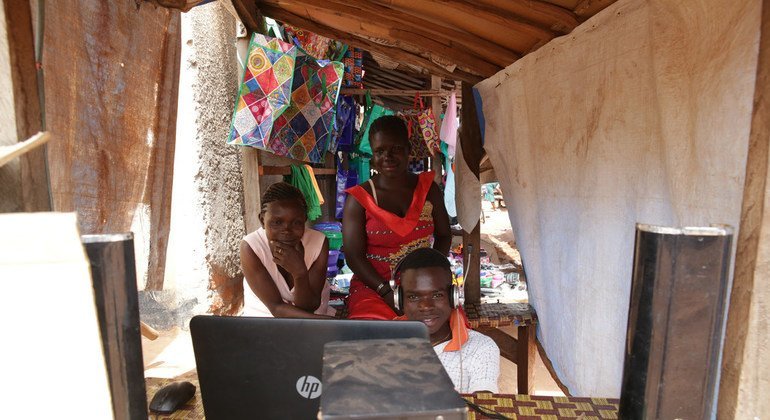
“Without universal and meaningful connectivity for all, the right to information is an empty promise for billions of people around the world,” Irene Khan said in her message to mark the International Day for Universal Access to Information, observed annually on 28 September.
The focus this year is on the importance of the online space.
She said the Internet is not equally available or accessible, which is “deepening existing inequalities and creating new inequities along lines of gender, geography, ethnicity, income and digital literacy, increasing the vulnerabilities of those most marginalised in society.”
The ‘oxygen’ fuelling democracy
Ms. Khan described the right to information as “the oxygen” without which neither democracy nor development can flourish.
She said access to information, whether online or off, enables people to be better
informed and better equipped to participate in decision-making, thus improving the quality and sustainability of development outcomes
Additionally, by empowering citizens, civil society and the media to hold governments and companies to account, it makes democracy more meaningful.
Laws and restrictions
Her latest report, published in April, revealed that many States have adopted laws on access to information, with some even recognizing access to the Internet as a legal right.
However, the “bad news” is that these laws often are not implemented effectively, she said. Various tactics are used to restrict or deny access to information, both online and offline, to investigative journalists, human rights defenders and other civil society representatives.
Ms. Khan reported that over the past five years, Governments in more than 74 countries have shut down or slowed down the Internet or blocked mobile communications for intermittent or prolonged periods.
These measures affected access to information and disrupted health, education and other essential services.
Vital to sustainable development
“Information, freedom of expression and active participation, online and offline, of youth, civil society and independent media are vital, whether to tackle global challenges, such as climate change and pandemics or to break age-old patterns of discrimination, exclusion and violence,” she said.
She added that both universal and affordable access to the Internet and access to information are “clear targets” of the Sustainable Development Goals (SDGs), the blueprint to a more just and equitable world.
Last week, world leaders gathered in New York for the High-Level Week of the UN General Assembly attended the SDG Summit aimed at shoring up commitment to achieve the goals by their 2030 deadline.
She urged States to translate commitments made at the Summit into concrete action.
Special Rapporteurs like Ms. Khan are appointed by the UN Human Rights Council to monitor specific thematic issues or country situations.
They are not UN staff and are not paid for their work.



